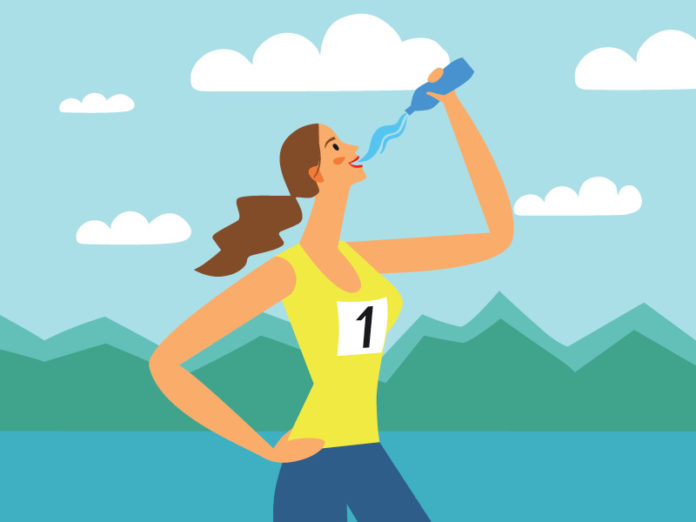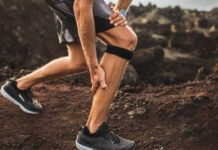
Running is thirsty work and water is considered by some to be the most neglected nutrient of runners and athletes in general.
Too little water causes:
- muscle cramps
- over-heating
- elevated heart rate
- poor exercise recovery
- lack of endurance
Too much water causes:
- Dilution of essential minerals, such as sodium, leading to potentially deadly hyponatremia
During running, fluid losses mainly occur from sweating which dissipates heat from hard working muscles. And you’ll lose even more water when it’s hot and humid, when you’re training at elevations over 2,000 m, have higher body fat or are not acclimatized to the environmental conditions.
To start your run well-hydrated:
- aim to drink 5 – 7 ml of water per kilogram of body weight three to four hours before running,
- drink another 3 – 5 ml of water per kg of body weight within two hours of running.
- These practices are recommended by studies published in the Academy of Nutrition and Dietetics and the American College of Sports Medicine.
- For example, a 70 kg (154 lbs) runner would drink between 350 – 490 ml (approx. 1 ¾ cups) 3 – 4 hours prior and then 210 – 250 ml (about one cup), 1 – 2 hours before running.
Sipping on fluids during runs will help also minimize dehydration. Initially try to drink 200 – 400 ml (3/4 – 1 ½ cups) per hour, consumed in two or three smaller doses, every 20 minutes or so.
Don’t:
- Chug your water. You’ll retain more fluid and may minimize gastrointestinal (GI) discomfort by sipping instead of chugging!
- Avoid over-drinking during long runs such as marathons or ultra-marathon distances since your kidneys can only manage about one litre of fluid in an hour, according to a study published by the American College of Sports Medicine.
Do:
- Drink a beverage containing sodium before, during and after runs. This will help you to retain more fluid, as well as increase palatability and the urge to drink. Sodium is the primary mineral lost by sweating.
- Drink more than you lose. Experts suggest between 25-50 per cent more. For example, if you lost 1 kg of weight from exercising then drink 1.2 to 1.5 L in your recovery (i.e., 1 kg body weight lost = 1 L fluid by weight).
Incorporating hydration within your runs requires trial and error to determine the optimal, personal mix. Sport dieticians are a great resource to help create an effective hydration routine to maximize training runs and races!















